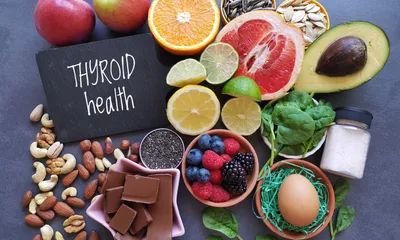How is the Stomach Protected from Self Digestion?

Our stomachs are filled with strong acids and enzymes that break down the food we eat. So naturally, that raises the question: how is the stomach protected from self-digestion? After all, if it can dissolve a nice steak, what’s stopping it from doing the same to itself?
While most of us don’t think twice about what’s going on down there, understanding how your stomach protects itself can give you a better appreciation for just how delicate and powerful your digestive system really is. We’ll take a closer look at how your body prevents this from happening and why it's such an important part of your overall digestive health.
How Digestion Works and Its Defense System
To explain how the stomach is protected from self-digestion, we need to first look at what happens when you digest food. Your stomach produces hydrochloric acid and digestive enzymes like pepsin to break down food. These substances are strong and break proteins down into smaller building blocks. Without protection, this mix would start digesting the stomach lining itself. So how does the body avoid that?
The answer lies in a few key defense mechanisms. First, the stomach is lined with a thick layer of mucus. This mucus has a lot of bicarbonate, which helps neutralize stomach acid right at the surface of the lining. It creates a physical and chemical barrier that keeps the stomach’s own digestive juices from doing damage.
Second, the cells in the stomach lining are constantly regenerating. These cells are replaced every few days, meaning that if any minor damage occurs, it gets repaired quickly before it can spread.
Third, there’s a tightly regulated system of acid release. Special cells called parietal cells produce stomach acid only when needed, usually in response to eating. This prevents the stomach from being overly acidic all the time.
What Happens When These Defenses Fail?
Sometimes, the stomach’s protection system doesn’t work as it should. When that happens, problems like ulcers or gastritis can develop. Ulcers form when acid eats through the stomach lining, often due to factors like chronic stress, infection with H. pylori, or overuse of NSAIDs like ibuprofen.
That’s why it’s important to pay attention to digestive symptoms like burning pain, nausea, or changes in appetite since they can be signs that the stomach lining needs support.
Summary
Your stomach relies on three main lines of defense: a protective mucus barrier, constant cell renewal, and careful regulation of acid release. Together, these systems explain how the stomach is protected from self-digestion. As long as they’re functioning properly, your stomach can do its job without harming itself. But if these defenses are disrupted, it’s time to get it checked out. Digestive health is all about balance, and your stomach works hard to maintain that balance every day. That’s why it’s important to pay attention to unusual digestive symptoms as they are ways your body may be signaling that something isn’t right. Catching problems early can prevent more serious issues down the line.
IMPORTANT NOTE: The above information is intended to increase awareness of health information and does not suggest treatment or diagnosis. This information is not a substitute for individual medical attention and should not be construed to indicate that use of the drug is safe, appropriate, or effective for you. See your health care professional for medical advice and treatment.


